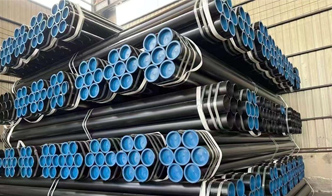Current location:
steel bend pipe
Date:2025-08-16 16:41:50 Read(143)

Understanding API 5L X70M PSL2 A Comprehensive Overview The API 5L specification is an essential standard developed by the American Petroleum Institute (API) that governs the manufacturing and testing of line pipes used in the transportation of oil, gas, and other fluids. Within this specification, the grade X70M PSL2 holds significant importance due to its specific mechanical properties, operational advantages, and broader implications in the energy sector. What is API 5L X70M PSL2? API 5L X70M is a grade of carbon steel pipe designed for transporting oil and gas. The X indicates the yield strength level, with 70 implying a minimum yield strength of 70,000 psi. The M denotes that this grade is manufactured using modified processes, ensuring superior toughness and quality. PSL2 stands for Product Specification Level 2, which indicates that the pipe meets stringent quality and testing requirements compared to PSL1 pipes. This grade of pipe is particularly noted for its high strength-to-weight ratio, allowing for efficient transportation without significant weight increase. This feature is especially vital as it helps mitigate cost and logistical challenges associated with heavy materials. Mechanical Properties The mechanical properties of API 5L X70M PSL2 are a key selling point. The requirement for yield strength, tensile strength, and elongation is meticulously defined. For instance, the minimum yield strength of 70,000 psi (approximately 483 MPa) enables effective performance under high-pressure conditions, making it suitable for harsh conditions often encountered in pipeline systems. Moreover, X70M pipes also exhibit excellent ductility and toughness, even at low temperatures. This characteristic is crucial as pipelines often traverse areas with extreme weather conditions. The ability to withstand stress without cracking minimizes risks of failure and enhances the overall safety of pipeline operations. Manufacturing Processes and Quality Assurance api 5l x70m psl2 The production of API 5L X70M PSL2 pipes involves rigorous quality control measures and advanced manufacturing processes. The use of controlled rolling and normalization treatments enhances the mechanical properties of the steel, ensuring consistent quality and performance of the pipes. Furthermore, PSL2 mandates additional testing requirements, such as non-destructive testing and additional chemical composition analysis, which assure that each batch meets specific standards. This comprehensive approach to quality assurance plays a critical role in maintaining the integrity of oil and gas transportation systems, where pipe failures can lead to catastrophic consequences. Applications and Industry Relevance The application of API 5L X70M PSL2 is widely seen in various sectors, primarily in the oil and gas industry. It is utilized in the construction of pipelines that transport raw material from extraction sites to refineries and distribution points. Due to its robust characteristics, it is also preferred for projects involving high pressure and long-distance transportation. Additionally, the grade is applicable in the construction of infrastructure for water supply systems and other industrial applications where high-strength materials are required. The versatility of API 5L X70M PSL2 makes it an invaluable resource across different industries, facilitating efficient and safe transportation of crucial resources. Environmental and Economic Benefits Utilizing high-strength pipes like API 5L X70M PSL2 contributes to environmental sustainability by reducing the likelihood of leaks and failures. The durability and resistance to harsh environments lead to lower maintenance costs and extended pipeline life, which is economically beneficial for companies in the long run. In conclusion, API 5L X70M PSL2 is a critical specification within the framework of materials used in the oil and gas industry and other sectors. Its mechanical properties, advanced manufacturing processes, stringent quality control, and broad application ensure that it remains a preferred choice for pipeline construction, thereby supporting the continuing growth and efficiency of global energy infrastructure.
Share:
Kind tips:The above content and pictures are compiled from the Internet and are for reference only. I hope they will be helpful to you! If there is any infringement, please contact us to delete it!
You may also like
- Exploring the Dynamics of Flanges A Technical Insight
- Choosing the Right 4 Inch Blind Flange for Your Project Needs
- Butt Weld Cap Applications and Benefits in Pipe Fitting Solutions
- Curved Metal Pipes for Diverse Applications and Innovative Design Solutions
- Exploring EN1092-1 PN10 Flanges Standards, Specifications, and Applications in Industrial Settings
- Creative Solutions for Innovative Water Pipe Cap Designs and Applications
- Current Pricing Information for 100mm Galvanized Pipe Options Available
- Creating a Unique Title for Your 5L x 60 Product Offerings
- Durable High Chrome Slurry Pumps for Enhanced Performance in Abrasive Liquid Handling Applications